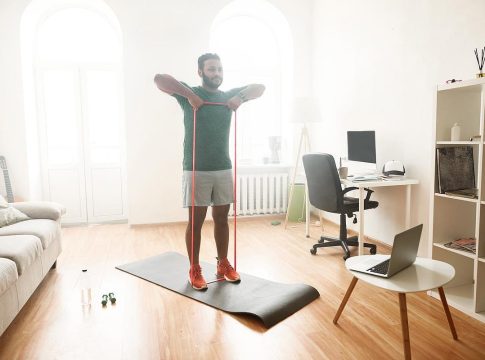Boosting Fitness for Those with Neuromuscular Diseases: New Research Insights
Understanding Neuromuscular Disease and Fitness Challenges
Living with a neuromuscular disease can pose unique challenges, particularly when it comes to maintaining physical fitness. These conditions can affect muscle strength and mobility, making it difficult for individuals to engage in regular exercise. Yet, a recent study shines a light on a promising approach to help enhance physical fitness among these individuals.
The Power of Personalized Coaching and Aerobic Exercise
Published in Neurology, this research indicates that combining personalized home-based aerobic exercise with coaching can lead to significant improvements in physical fitness for people with neuromuscular diseases. Conducted by a team from the University of Amsterdam, the study involved a controlled trial with participants randomly assigned to either a six-month exercise intervention or standard care.
Key Findings
- Improved Peak Oxygen Uptake: Participants in the exercise group exhibited an average peak oxygen uptake increase of 2.2 mL/min/kg immediately after the intervention, with a sustained advantage of 1.7 mL/min/kg over time.
- Daily Life Facets Unchanged: While fitness levels improved, secondary outcomes—like daily physical activity, quality of life, physical functioning, and metabolic syndrome markers—did not show significant change between groups.
- Safety First: Both groups reported adverse events, but no severe complications arose, underscoring the importance of carefully monitoring health during exercise regimens.
Expert Takeaway
Dr. Eric L. Voorn, a coauthor of the study, underscores the necessity for ongoing research. He advocates for understanding how improved fitness can enhance daily living activities and highlights the need for strategies that encourage long-term exercise habits.
Tips for Starting Your Fitness Journey
Whether you’re a beginner, a busy professional, or a fitness enthusiast, here are some practical steps to consider if you’re facing similar challenges:
- Start Slow: For those new to exercise, begin with short, manageable sessions of aerobic activities like walking, cycling, or swimming.
- Set Realistic Goals: Focus on gradual improvements in your fitness levels rather than aiming for quick results.
- Engage a Buddy: Finding a workout partner or a coach can provide motivation and accountability.
- Listen to Your Body: Always pay attention to how your body responds to exercise and adjust accordingly.
- Celebrate Small Victories: Recognize and celebrate your achievements, no matter how minor they may seem.
Conclusion
Combining personalized home-based aerobic exercise with coaching presents a valuable opportunity for individuals with neuromuscular diseases to enhance their fitness levels. As research evolves, the goal remains clear: to inspire and support those facing physical challenges in their quest for improved health and well-being. Embrace the journey, stay motivated, and remember—every step counts!

Covers wellness, nutrition, mental health, and daily life tips.
Bio: Talia brings a background in health journalism and holistic living to help readers live better, one tip at a time.

